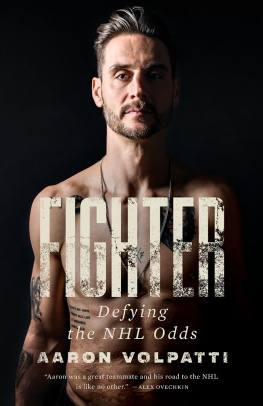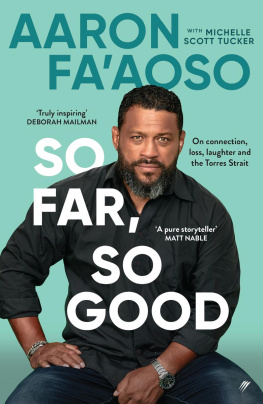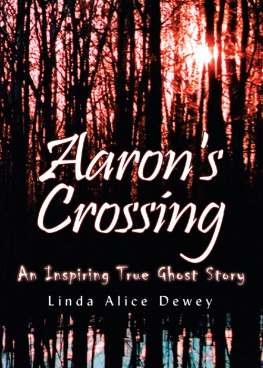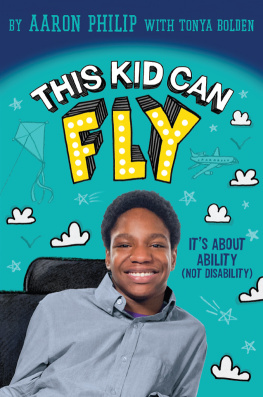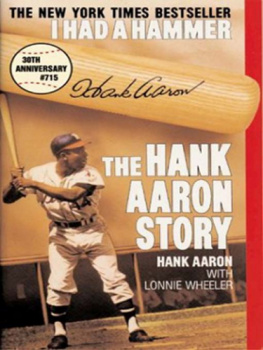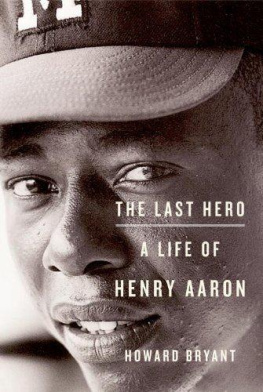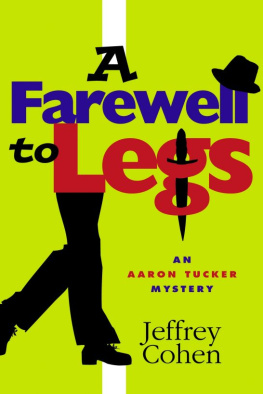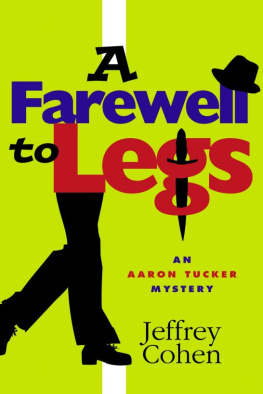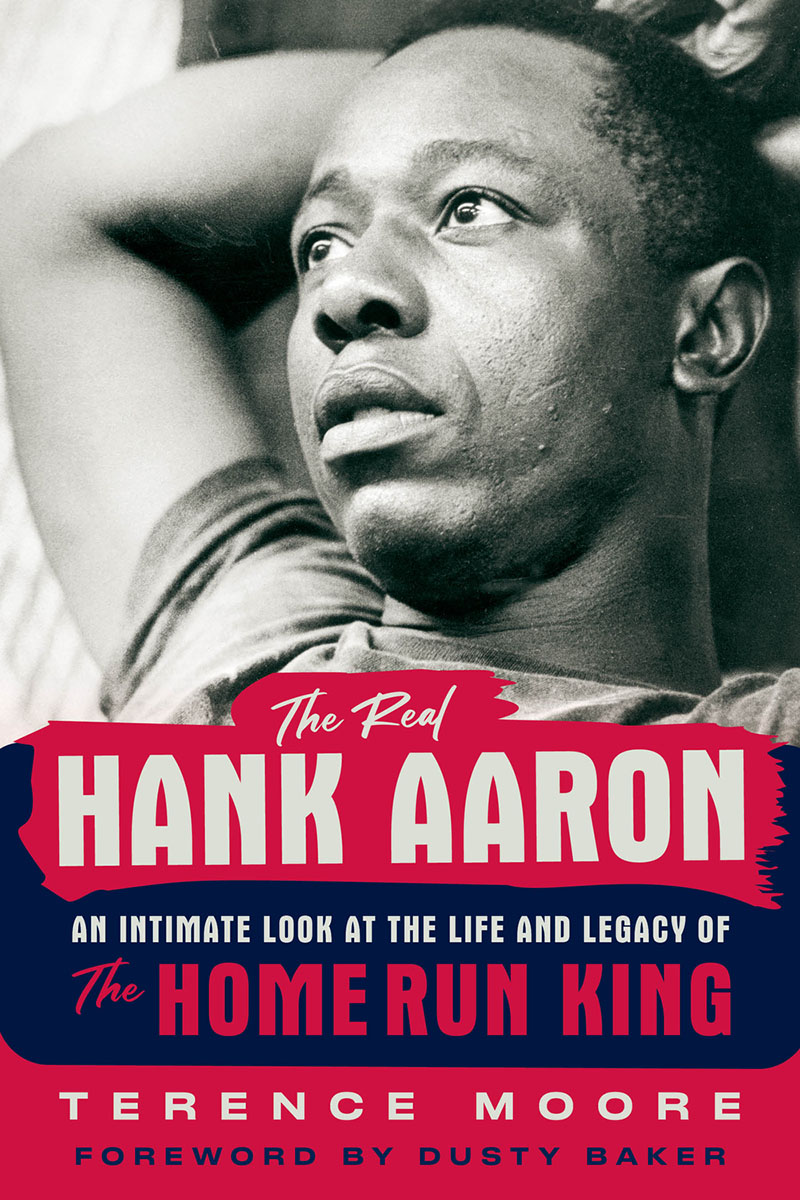
To Samuel and Annie Moore, the perfect parents and my personal Jackie Robinsons, and to my brothers, Dennis and Darrell, who occasionally listened to their big brother
Contents
Foreword by Dusty Baker
Ive often thought about this: Hank Aaron was more special than what the average person saw on television or read about in newspaper and magazine articles or even in books. He was a man. I mean, he was a strong, proud, and fearless Black man. He was a dedicated father to his children. He was a social leader back in the days helping Andrew Young, Ralph Abernathy, Martin Luther King Jr., Jesse Jackson, Herman Russell, Maynard Jackson, and then governor Jimmy Carter. He was wise. He was extremely generous, and his help extended to so many people, especially to young African Americans.
He helped me.
Next to my dad, Hank Aaron was the most influential man in my life, and my dad meant everything to me.
So did my mom. When I graduated from Del Campo High School in Sacramento, California, as a four-sports standout in baseball, basketball, football, and track, my parents wanted me to go to college. I wasnt against the idea. I thought about playing basketball at one of the Division I schools offering me a scholarship, but my parents got divorced at the same time I was drafted by the Atlanta Braves. They picked me in the 1967 Major League Draft while offering me a contract and a signing bonus, which was perfect timing for our household back then. I figured I could help the family financially by taking what the Braves were offering.
Those were big factors, but what pushed me toward joining the Braves was Hank getting involved. By then, he already was the all-time best player for the franchise and he was among the best ever in major league history. He spent the previous year in 1966 with a National League-high 44 home runs and he led baseball overall with 127 RBIs. He was going into his 14 th season and he had never missed an All-Star Game after his rookie year.
So, that was the same Hank Aaron who promised my mom in 1967 that he would take care of me. As a young man in his late teens, I could be a little wild. I liked to have a good time, but I wasnt what you would call a bad kid. I was close to trouble and I needed some guidance because if youre close to trouble, it could lead to something worse.
Hank sensed all of that. He told my mom he would look after meboth on and off the fieldlike I was his own son. That was amazing, and to hear it coming from Hank Aaron, it was impossible to turn down. I agreed to take the Braves offer, and after that Hank did something more impressive than giving those promises to my mom. He kept them. He kept every one of them during the eight years we were together in the Braves organization. He made sure I got enough sleep. He made sure I ate right. He made sure I kept my spiritual life together by going to church.
I used Hank Aaron as a reference point for achieving success throughout my baseball career and actually throughout my life.
One of the biggest examples came off the field. Im a California guy and I thought I knew about racism after we moved from Riverside, where I was born and raised in the southern part of the state, to Sacramento in the northern part of California. I spent my junior and senior years attending a Sacramento high school that was all White except for me and my brother. My parents bought a house in Sacramento in an all-White neighborhood.
Those situations still didnt prepare me for my first five years in professional baseball with the Braves franchise when I played for a bunch of minor league teams in the Deep South in Austin, Texas; Greenwood, South Carolina; West Palm Beach, Florida; Shreveport, Louisiana; and Richmond, Virginia. Compared to Sacramento, the racism in those cities was at a completely different level during the late 1960s and early 1970s. I couldnt stay in the same apartment complexes as my White teammates, and more than a few restaurants or bars were off-limits to Black people.
Since Hank dealt with much worse as a guy who played in the Negro Leagues and who operated in the minor leagues of the Milwaukee Braves during the early 1950s in Jim Crow places like Jacksonville, Florida, he helped me put things into perspective. I mean, it was rough for me as a Black man playing in the Land of Dixie, but it wasnt Hank Aaron rough. He told me his stories andjust like meHank loved Jackie Robinson. Hank idolized Jackie Robinson and Hank knew Jackie personally. I enjoyed those many times Hank gave me an insiders version of the racism and adversity Jackie encountered after Jackie broke baseballs color barrier on April 15, 1947, with the Brooklyn Dodgers.
I saw Hank become Jackie. In fact, I was an eyewitness to the Jackie-like hell Hank Aaron encountered along his way to breaking Babe Ruths career home run record of 714 on April 8, 1974. First, I was promoted as an outfielder to start with the Braves before the 1972 season and before long I was around when Hank received death threats and hate mail while chasing Ruth. The whole situation was awful, but during that time, Hank tried to keep things as normal as possible for me and my roommate on road trips with the Braves. My roommate was Ralph Garr, another African American, and we signed with the franchise on the same day.
We both were Hanks unofficial sons.
Wherever Hank went, we were right there. But as close as we were, more than once, I saw Hanks threatening letters buried in his locker or on the floor. The future Baseball Hall of Famer that we admired so much wanted to protect us from most of the terrible things he suffered through. Thats why it meant so much for me to be right there on April 8, 1974, when Hank broke Ruths record at Atlanta-Fulton County Stadium against the Los Angeles Dodgers.
I was in the on-deck circle in the bottom of the fourth inning, and before Hank walked to the platewith cameras flashing everywhere and the whole world watchinghe said, Dusty, Im going to get this over with right now. He swung, and the pitch he hit from Al Downing headed toward the bullpen behind the left-center-field fence. I could have been the first person to greet him after he made history, but I stayed put. The way I looked at it: that was Hanks moment, and I didnt want to do anything to disrupt it.
At Hanks request, he was traded to the Milwaukee Brewers after that 1974 season. He wanted to finish his major league playing career in the city where it started, and that was in Milwaukee before the Braves moved to Atlanta in 1966 and before the Brewers came into existence four years later. I stayed with the Braves for the 1975 season and I spent the next eight years with the Dodgers before I ended my playing career following the 1986 season after stops with the San Francisco Giants and Oakland As.
Then I coached with the Giants for five seasons, but I spent nearly the last three decades of Hanks life managing five different major league teams, and he was so proudespecially since he devoted his post-playing career as a Braves executive to advocating for more Black coaches, managers, scouts, executives, umpires, and even players in the game. I wish he could have lived to see me managing the Houston Astros in the 2021 World Series against the Braves.
There was rarely a time I came to Atlanta as a player, a manager, or just in general when I didnt try to contact Hank. He always had something to make you laugh, something inspirational to say, or something memorable from the past, or he was just The Hammer. He was always The Hammer. I miss him.


